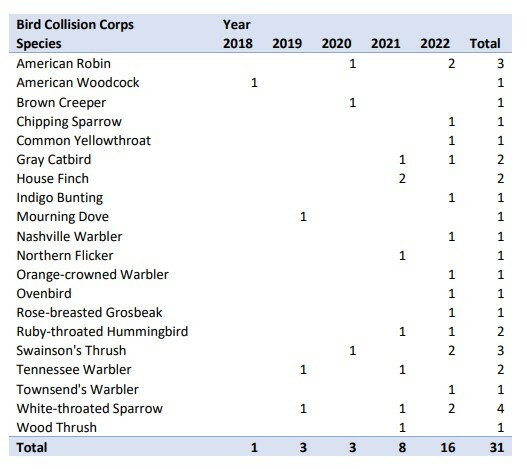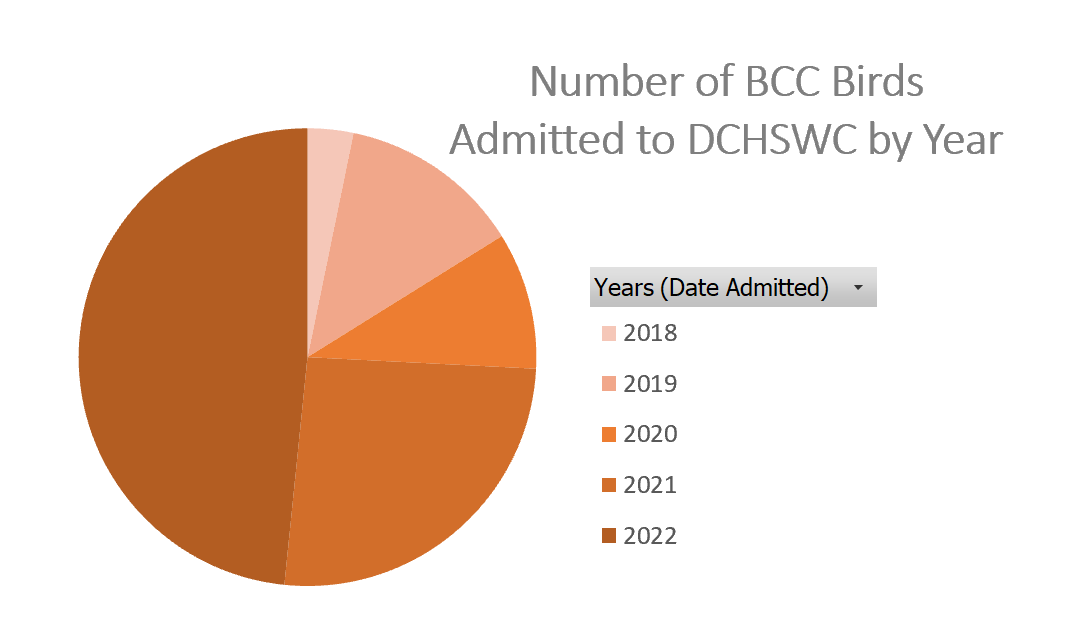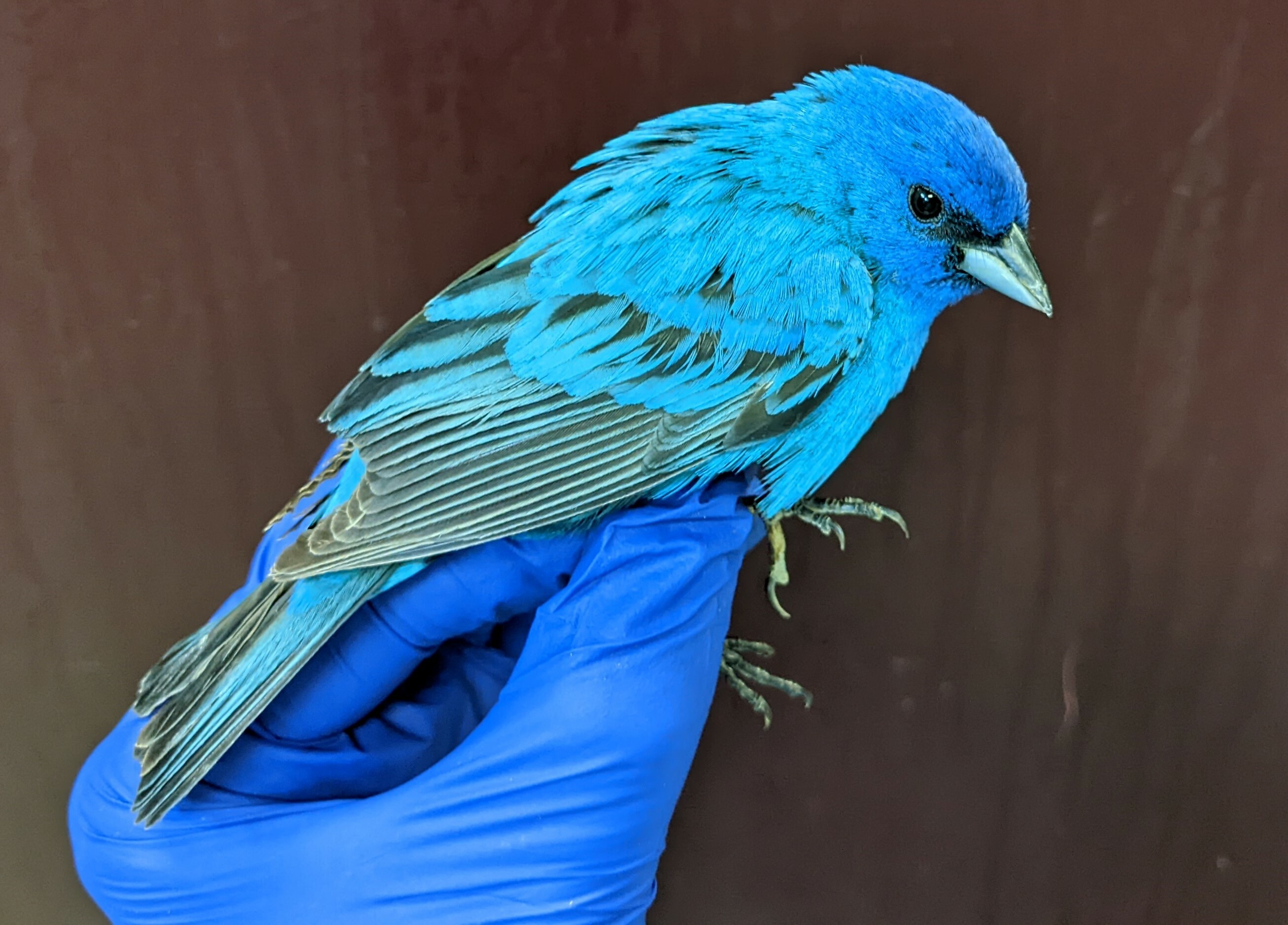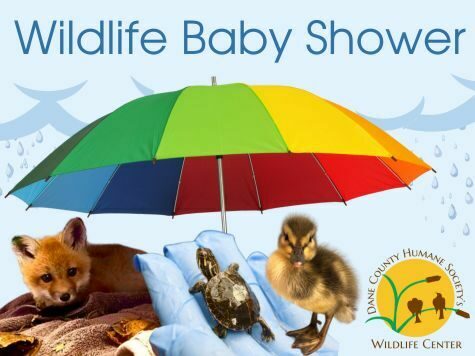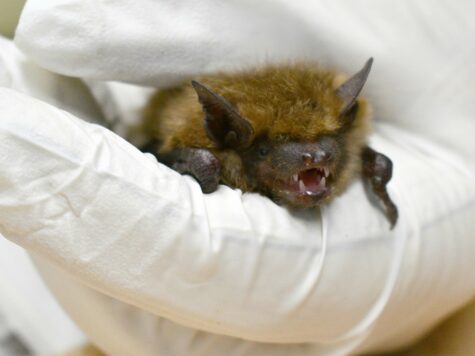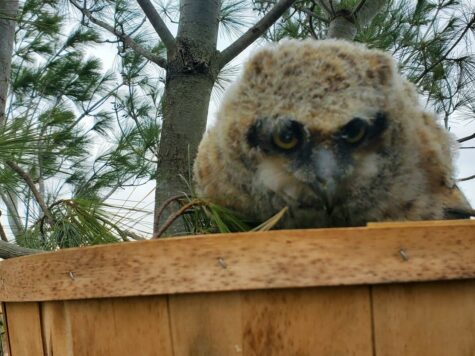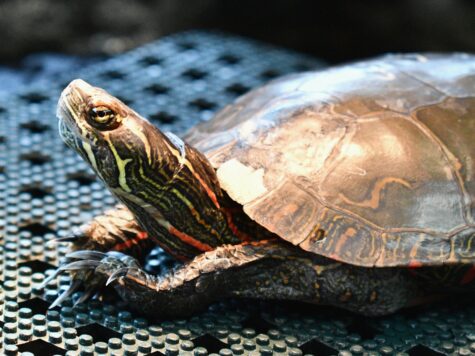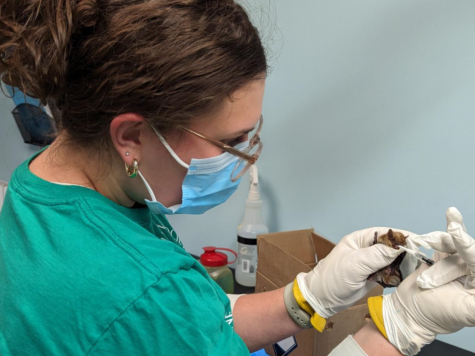Window collisions are the second highest human-caused death in birds, after free ranging cats. With this in mind, the Madison Audubon Society (MAS) initiated a Bird Collision Corps (BCC) project in 2018.
This project involves trained volunteers surveying numerous buildings on the UW-Madison campus and the Capitol Square, in addition to seven other sites in the Madison area. Surveys are conducted during the fall and spring migrations. Right now, the program runs from mid-September until November 1st.
Between 2018 and 2020, BCC participants documented 1,060 bird deaths and 89 injuries resulting from window strikes at just the buildings that were surveyed. Extrapolating from this data, it is likely that tens of thousands of migratory birds are killed each year in Madison alone.
DCHS’s Wildlife Center is an active partner in the BCC project. Volunteers bring any injured bird to the Wildlife Center with information regarding the species (if known), location found, time of observance, and any other information that may be useful. Since 2018, DCHS’s Wildlife Center has admitted a total of 31 birds from BCC. Sixteen of those birds were admitted in 2022, as of October 17th, because of the increase in monitoring locations. Of all BCC admissions, 20 have been successfully rehabilitated and released and three are currently still in care!
Broadly speaking, the vast majority (43.6%) of window strikes occur at residences, 53.3% at low rise buildings, and 0.1% at high rise buildings. The MAS website offers more ways you could help prevent window strikes.
Mary Manering is a reception volunteer at DCHS’s Wildlife Center and an Audubon BCC volunteer.
